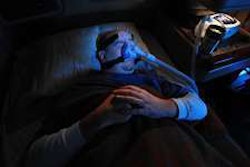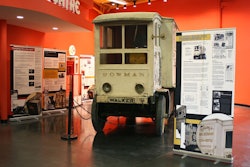A coalition of highway businesses on June 22 voiced opposition to a bill it says threatens thousands of businesses operating at exits along the nation’s Interstate Highway System, jeopardizing the jobs of more than 2 million Americans.
The legislation, authored by U.S. Sen. Mark Kirk (R-Ill.) and unveiled this week, would permit states to sell food and fuel from interstate rest areas.
The Partnership to Save Highway Communities says Kirk’s legislation would pull the rug out from under the nation’s interstate-based fast-food franchisees, convenience stores, gas stations and truck stops at a time when the businesses are just starting to see signs of recovery from the recession.
“This legislation does nothing more than grant state governments a monopoly directly on the interstate shoulder or median,” said Lisa Mullings, president and CEO of NATSO, a member of the coalition representing truck stops. “The right-of-way location of the commercial rest areas gives the state a major advantage over the businesses at the exit. On interstates where there are commercial rest areas, there are 50 percent fewer businesses at the exits. By changing this law, the government isn’t creating any new demand from travelers for hamburgers or gasoline. They are simply transferring sales from exits to state rest areas.”
Kirk hopes his legislation to remove federal restrictions on private-public partnerships would encourage privatization to create more money for transportation projects nationwide, saying his plan could spur more than $100 billion to build new highways, railroads, public transportation, airports and ports. States could earn money by leasing out their highway rest stops as long as parking and restrooms remain free, he says, using an example of a privately leased rest area in Delaware that’s making $1.6 million annually for the state.
The partnership says small towns and counties are benefactors from interstate exit businesses that pay more than $600 million a year to local governments, helping to fund schools, police and fire departments and other local services. The partnership says the Kirk legislation will result in town and county governments seeing some of their top taxpayers threatened, potentially transferring state budget woes onto local governments.
The groups contend Congress effectively privatized interstate services in the late 1950s by passing legislation that prohibited commercial development of rest areas after 1960. The law successfully encouraged investment at the exits, with some 97,000 small businesses operating within a quarter-mile of the Interstate Highway System.









